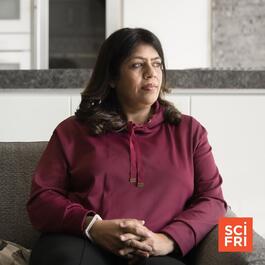
Science Friday
Science Friday, as heard on PRI, is a weekly discussion of the latest news in science, technology, health, and the environment hosted by Ira Flatow. Ira interviews scientists, authors, and policymakers, and listeners can call in and ask questions as well.
Show episodes
This week the Trump administration indicated that it would seek to roll back a key EPA finding that allows the agency to regulate greenhouse gas emissions from things like cars and power plants. The 16-year-old rule, known as the “endangerment finding,” states that six greenhouse gases pose a threat to human health. So
Whistling is a skill used to communicate over distances—a whistle can mean anything from “you’re cute” to “time to come home for dinner.” There’s a complex series of mechanisms in the mouth that need to come together to make a whistle. Hosts Ira Flatow and Flora Lichtman discuss all things whistling with professional m
Paleontologists have identified an ancient reptile with a towering crest made not of skin, or scales, or feathers, or antler—but something else entirely. It’s some kind of integumentary outerwear we’ve never seen before. The small creature sporting the curious crest was named Mirasaura grauvogeli, and it lived during t
The Trump administration has proposed cutting NASA’s budget by almost 25% and shutting down 19 currently operating science missions. On July 21, several hundred current and former employees of the space agency released an official letter of dissent, titled “The Voyager Declaration,” arguing against “rapid and wasteful
Menopause is having a moment. Celebrities like Halle Berry, Naomi Watts, and Michelle Obama have recently shared their personal menopause experiences. Menopause and perimenopause are showing up across social media and even in popular books. All this to say, menopause has finally gone mainstream. But, it wasn’t until a
The EPA recently announced that it’s going to shut down its scientific research arm, called the Office of Research and Development. Since the agency was founded nearly 55 years ago, it’s had in-house scientists researching things like pollutants in our air and water, and the risks posed by toxic chemicals. That researc


